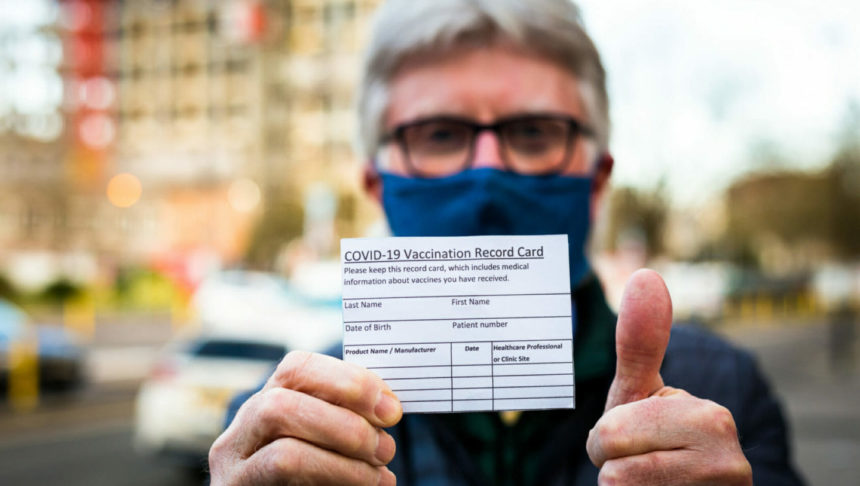
Long-term care clinicians are embracing the federal government’s first full approval of a COVID-19 vaccine, saying the decision will support their efforts to increase vaccination coverage and reduce infections and severe illness in residents under their care.
Pfizer-BioNTech’s COVID-19 vaccine has met stringent safety, effectiveness and manufacturing requirements necessary to move its status from emergency use authorization to full approval, the Food and Drug Administration announced Monday. Now to be marketed under the brand name Comirnaty, the drug may be used against COVID-19 in individuals aged 16 years and older, and as a third dose in immunocompromised patients and some younger children under emergency use.
The approval is a major development for the long-term care sector, said Sabine von Preyss-Friedman, M.D., chief medical officer of Avalon Health Care Group. It lends additional authority with which clinicians can make a case for vaccination — to staff members especially, she told McKnight’s Clinical Daily.

“Over 204 million doses have been given in the United States and there have been no major safety issues identified. The vaccinations have led to dramatic reduction of outbreaks in long-term care,” said von Preyss-Friedman, who is also president of the Washington Society for Post-Acute and Long-Term Care Medicine.
While there has been good uptake among Avalon facility residents, “those of our employees who were unsure and hesitant that there has been no approval should now feel reassured,” she said.
“I do hope that our staff — who were willing to take so much risk during the pandemic before any vaccines were authorized … now can feel safe to take care of our patients with even less risk,” she added.
Conversations about the importance of vaccination against COVID-19 were harder to have back in mid-December, when the vaccine was new, geriatrician Kathleen Unroe, M.D., MHA, told the McKnight’s Clinical Daily.
Most of the reasons given by the minority of staff members who remain unvaccinated are the same ones that any non-vaccinated adult gives, including personal concerns about the vaccine being “experimental” and other disinformation that has been spread across social media, added Unroe, who, along with caring for patients is a long-term care researcher and professor from Regenstrief Institute and Indiana University School of Medicine.
“Now we have millions of data points about the vaccine. Full approval by the FDA addresses yet another commonly raised concern and, I hope, helps to convince more people that the vaccine is safe and effective. The impact of the vaccines on the mortality and just overall hopefulness in the face of COVID-19 in nursing homes cannot be overstated,” she said.
Acting FDA Commissioner Janet Woodcock, M.D., also said that the FDA approval of a vaccine may now instill additional confidence in those who are vaccine-hesitant.
“Today’s milestone puts us one step closer to altering the course of this pandemic in the U.S.,” she said in the Monday approval announcement.
“The public and medical community can be confident that although we approved this vaccine expeditiously, it was fully in keeping with our existing high standards for vaccines in the U.S.,” Peter Marks, M.D., Ph.D., director of FDA’s Center for Biologics Evaluation and Research, added.
Clinician advocates, including the American Medical Association, American Nurses Association and American Hospital Association, have also applauded the approval.
Up to 30% of unvaccinated people polled have said that they were waiting for full approval before getting vaccinated, the organizations noted Monday in a joint statement. Lack of approval has also been cited by long-term care workers as a top reason for vaccine hesitancy.
“With millions of data points on the vaccine’s safety and efficacy over nearly nine months of vaccinations, every ‘i’ is dotted and every ‘t’ is crossed. This vaccine is safe, it prevents severe COVID-19, hospitalization, and deaths, and it will save your life,” the groups said.
Moderna’s vaccine is likely next in line to be approved, based in part on its place in the original emergency use authorization timing.
In related news:
Third Pfizer shot boosts COVID-19 protection sixfold in real-world study New data from Israel’s health ministry shows that older adults who get a third dose of Pfizer’s COVID-19 vaccine receive protection up to six times higher against serious illness and hospitalization compared with a second dose, Reuters reports. Following June 30, the country started administering the extra shot to people aged 40 and older and healthcare workers, among other vulnerable populations. Booster-dose recipients in Israel must have received their second dose at least five months beforehand.




